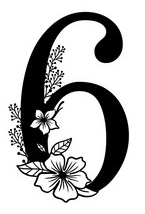Director: Rob Savage
Stars: Haley Bishop, Jemma Moore, Emma Louise Webb
Horror filmmaking has long been at the forefront of social commentary and trends (sometimes even leading the charge), so it seems perfectly legitimate that the first high profile film of the lockdown age comes from the more ghoulish end of the cinematic spectrum. New to horror streaming channel Shudder and cannily staged over a transatlantic Zoom call, Host joins the likes of Unfriended and Searching in utilising the darker possibilities of the internet and our inherent paranoia for its own devilish ends.
We watch as a group of friends reconnect over Zoom in order to take part in a seance. What starts out as a novel way to freshen up a group chat soon deteriorates into a distressing hour of creeps and paranormal activity.
Haley (Haley Bishop), Jemma (Jemma Moore), Emma (Emma Louise Webb), Radina (Radina Drandova) Teddy (Edward Linard) and Caroline (Caroline Ward) are guided through a journey to the astral plain by medium Seylan (Seylan Baxter). Jemma, striving to bring some action to proceedings, conjures a ghost from her imagination. Little does she realise that she may have opened a door for something much more insidious to join their little meeting; something uninhibited by borders – an invisible killer that has the ability to invade any of their spaces or, according to Seylan, even possess any of them… infect, if you will.
Director Rob Savage and his committed actors have orchestrated something particularly nifty here. Host plays like an extended V/H/S short (it comes in at a lean, mean 56 minutes). The lo-fi format proves a versatile tool for incorporating a number of practical and visual effects as grave encounters rapidly pile up the closer the call gets to its inevitably grim conclusion. It’s a creepy watch, but also an enterprising one. As with the Unfriended films, editing is key to the film’s success, and on this front Brenna Rangott may be its true unseen MVP. There is an over-reliance on the very modern horror crutch of jump scares. Gimmicky as these things may be, there’s little denying that found footage is uniquely suited to enabling them.
More interesting are the efforts made to incorporate the traits of Zoom into the film’s tension. Caroline sets up a dummy background – a looping video of herself as a kind of twin – that ultimately becomes a pretty chilling touch once things take a turn for the dire. The pop-up for a room extension provides a moment of realism as things bend toward the haywire. Connectivity issues mean that members of the cast can appear and disappear as well; their absence from the screen becoming a pregnant void. What we can’t see is often the scariest.
That last notion is really where the meat is here, as Host taps into the unseen threat that lockdown is all about. Current events may not have prevented the making of this occasionally ingenious little number, but it is something altogether different for Host to address our circumstances head-on in the way that it does. The technology used will date the film, so bringing 2020 commentary into proceedings is sensible. Zoom will have already placed Host in a time capsule, so why not run with it?
In the quarter-hour warm up before the seance, the friends discuss the habits and restrictions of living in the age of Coronavirus, while the film also incorporates our changed routines into it’s plot (an ill-timed food delivery provides a jump that’s both effective and humorous because of how we’re able to relate to it). An innocuous cough from Radina is worth commenting on by all who hear it, while her home situation has a gently played note of tension all of its own, as she is sharing her quarantine with a relatively new partner (side note, I’ve spent lockdown with a couple who have broken up during these months; it is no joke). When things grow truly life threatening for the group, it’s also telling that one of their number reacts by putting their mask on (okay, there’s another intention there, but it still feels like a psychologically loaded moment).
It isn’t the only time that a mask haunts proceedings. One of the more vivid set-pieces crammed in plays on our fears of the very notion of a mask; a tool for hiding and for mischievous play. Paranoia runs like a lightning bolt through Host. It’s brevity works both for and against it. On the one-hand, there’s no fat on this thing; it’s immediate; it doesn’t really give you a chance to become distracted. On the other, there’s almost too much crammed in. Impressive as the aforementioned editing is, a few more natural breathers might’ve also been welcome. Still, it is at least as good as the rather-undervalued Unfriended films, to which it bares close resemblance. Host may outlive those, however, for just how smartly it taps into the turbulent present. It will likely become a frequently referenced footnote of this strange portion of film history, simply for getting there first.


4 thoughts on “Review: Host”